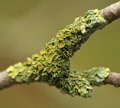
DMT-Nexus member
Posts: 333 Joined: 07-Nov-2009 Last visit: 06-Oct-2022
|
A quick question here, with hopefully a simple answer. I have a lot of Amanita Muscaria that pop up next to our birch trees in the same place every year. I have another birch in another area of our property and I was wondering what the likelyhood of these mushrooms starting here, if I say get a heap of them, break them up and scatter them around the area of the other birch tree. Anyone have any ideas? I'll put up some photo's of these beauties when I get a moment tomorrow. I am a piece of knowledge-retaining computer code imitating an imaginary organic being.
|
|
|
|
|

DMT-Nexus member
Posts: 3207 Joined: 19-Jul-2011 Last visit: 02-Jan-2023
|
if you collect a fair amount of spores, and you place them directly on the roots of the birch, you might be able to get them to spring up next year. i tried just laying a bunch of wet caps around a monster birch near my house, and they didn't take. in the end i just discovered a lake that gets more amanitas around it than i could possibly hope to harvest, so i just hit that up every amanita season. My wind instrument is the bong
CHANGA IN THE BONGA!
樹
|
|
|

DMT-Nexus member
Posts: 69 Joined: 29-May-2010 Last visit: 20-May-2013 Location: Canada
|
Its very possible and I think likely. Could take a couple or few seasons(maybe more) for the mycelium to grow enough to start fruiting bodies. So I hope your not in a hurry. "Prying open my third eye."
"We are all one conciousness experiencing itself subjectively..."
Bill Hicks
|
|
|

DMT-Nexus member
Posts: 333 Joined: 07-Nov-2009 Last visit: 06-Oct-2022
|
Ok well it's been over a year now, and I can report that there is no sign of any A. Muscaria growing in the new area that I tried to introduce to. I basically placed about 10 mature A. Muscaria of various sizes in the area around the birch tree, caps facing down. This year I will try Paul Stamets' spore-mass slurry teqnique that he has mentioned many times:
For those wishing to begin a mushroom patch using fresh specimens, a more efficient method of spore collection is recommended. This method calls for the immersion of the mushroom in water to create a spore-mass slurry.
Choose fairly mature mushrooms amd submerge them in a 5-gallon bucket of water. A gram or two of salt inhibits bacteria from growing while not substancially affecting the viability of the spores. With the addition of 50 millilitres of molasses, spores are stimulated into frenzied germination.
After 4 hours of soaking, remove the mushrooms from the bucket. Most mushrooms will have released tens of thousands of spores.
Allow the broth to sit for 24 to 48 hours at a temperature above 50 F but under 80F.
In most cases spores begin to germinate in minutes to hours, aggressively in search of new mates and nutrients. This slurry can expanded by a factor of 10 in 48 hours.
I will do this, and spray my huge area of birch trees and report back next year. I am a piece of knowledge-retaining computer code imitating an imaginary organic being.
|
|
|

DMT-Nexus member
 
Posts: 1288 Joined: 22-Feb-2014 Last visit: 16-Mar-2024
|
You'll have Better luck if you take the spores and colonize on agar. Transfer a wedge a few times to make sure the culture is not contaminated, and then inoculate some sterilized grain jars. Let the jars colonize completely. Dig a few shallow holes near the Birch. After the grain is colonized, mix with coir and verm and bury in holes. It will probably take a full season for the mycelium to find the tips of the roots - so you will have to come back a year later and check on it. Good luck! Sometimes it's good for a change. Other times it isn't.
|
|
|

DMT-Nexus member
Posts: 333 Joined: 07-Nov-2009 Last visit: 06-Oct-2022
|
Thanks AcaciaConfusedYah, that's a really good idea. I have a lot of birch trees so I will do some experimenting, I will definately do your idea, but I will do the slurry as well in a seperate area because I really want to see if it will work. I am a piece of knowledge-retaining computer code imitating an imaginary organic being.
|
|
|

Mushroom Explorer
Posts: 538 Joined: 18-Jan-2013 Last visit: 29-Aug-2025 Location: Mushvile
|
AcaciaConfusedYah wrote:You'll have Better luck if you take the spores and colonize on agar. Transfer a wedge a few times to make sure the culture is not contaminated, and then inoculate some sterilized grain jars.
Let the jars colonize completely.
Dig a few shallow holes near the Birch. After the grain is colonized, mix with coir and verm and bury in holes.
It will probably take a full season for the mycelium to find the tips of the roots - so you will have to come back a year later and check on it. Good luck! ^^^ great advice! haha beat me to it, I was going to suggest something very similar... as a side note, your may be thinking, "if I can grow Fly Agaric mycelium in a controlled environment indoors then why cannt I fruit them indoors?" well its virtually impossible to fruit fly agaric indoors, my understanding is that the mycelium needs a certain amount of specific bacteria and a certain soil mix to imitate pinning and thus fruiting... this bacteria / soil mix has yet to be discovered, when it is (hopefully some day!), I am sure people will fruiting fly agaric indoors, but until then, I would go with AcaciaConfusedYah advice and you should have, as borat says, "great success" Peace I am certifiably insane, as such all posts written by me should be regarded as utter nonsense or attempts to get attention in fact everything I write here is a lie !
I hope in some way, my posts and replies may of helped you, I hope you like what I have said here if not feel free to send me a none flame PM
|
|
|

DMT-Nexus member
 
Posts: 1288 Joined: 22-Feb-2014 Last visit: 16-Mar-2024
|
   Muscarias are said to be mycorrhizal - meaning that they have a symbiotic relationship with certain species of trees. This, along with what infinitynlove mentioned about the various bacteria that actually contribute to growth, is what keeps us from fruiting muscarias inside. So, theoretically(and I have full intentions of trying one day) this could possibly be done in a green house. One could possibly keep various species of trees which the mycelium favors, and control the humidity and temp in the green house. If one can identify all the factors that contribute to growth, It's doable. I'll be building my greenhouse this season. I mainly plan on targeting edibles - chanterelles and morels, but the same concept applies. Sometimes it's good for a change. Other times it isn't.
|
|
|

DMT-Nexus member
Posts: 333 Joined: 07-Nov-2009 Last visit: 06-Oct-2022
|
AcaciaConfusedYah wrote:
So, theoretically(and I have full intentions of trying one day) this could possibly be done in a green house. One could possibly keep various species of trees which the mycelium favors, and control the humidity and temp in the green house. If one can identify all the factors that contribute to growth, It's doable. I'll be building my greenhouse this season.
I mainly plan on targeting edibles - chanterelles and morels, but the same concept applies.
Very cool project AcaciaConfusedYah. I wonder what sort of bacteria/soil mix is prefereable, I hadn't heard of this idea before. I am a piece of knowledge-retaining computer code imitating an imaginary organic being.
|
|
|
DMT-Nexus member
Posts: 168 Joined: 28-Jun-2014 Last visit: 06-Jan-2025 Location: What good is salt if it has lost its savor?
|
Grave digging, but have tried a bit if this myself and while unsuccessful, I do have new things to add.
One probable reason even a slurry won't have a high success rate is that you aren't innoculating into a friendly territory. Same thing goes for other outdoor beds, you almost assuredly need a kickstarter of semi sterile wood chips or poo to get it going.
It makes it even harder when you realize that mycorrhizal means they need a relationship with those roots to flourish. Mature tree roots are already in relationships! So you'd expect that a foreign competitor wouldn't be able to unseat other established fungus on those roots in conditions! Plus, you are going uphill, mushrooms grow where conditions are suited to them, if water, soil comp, humidity, weather cycles, tree species etc aren't good for them, they aren't going to be there!
So I'm proposing a couple things. What if you semi sterilized the soils and roots with something like hydrogen peroxide? And also bring a cutting of roots and soil from the mother location where AMs have grown? Also, you can just blend the whole cap and pour that, you may get the old myc to grow, not just spores.
|
|
|
DMT-Nexus member
Posts: 17 Joined: 18-Oct-2020 Last visit: 30-Nov-2020 Location: Amsterdam
|
I'm relatively new to the topic of amanita, but I've done a bit of frantic research after discovering I've got a bunch of muscaria and pantherina growing in my area. From what I've read, Amanita muscaria has been inadvertently introduced as an invasive species to several countries growing alongside imported trees, suggesting that the fungus has an easier time establishing symbiosis with young trees. This makes sense intuitively, as an older tree probably already has various fungi living between its roots, which the amanita would have to displace, as FiniteFox already pointed out. That's why I'm experimenting with growing trees from seed in contaminated soil. I've inoculated one seed bed (birch) with amanita spore slurry and an old buried mushroom and I'm going to continue adding spores seasonally until I see signs that an amanita mycelium is developing. Once I see seedlings growing I'll try to repot them in a mixture of soil they've already been growing in and birch forest soil from confirmed amanita hotspots. It'll take some time, but I'm fairly confident I will see results eventually with this approach. What might work even better/faster is doing the same, but with root cuttings from a confirmed amanita host tree instead of seeds.
|
|
|

Boundary condition

Posts: 8617 Joined: 30-Aug-2008 Last visit: 24-Dec-2025 Location: square root of minus one
|
FWIW, intentional inoculation of desired mycorrhizal species onto tree roots is typically carried out by dipping the roots of saplings into the spore mixture or a liquid culture of the target fungal species. Truffles and chanterelles have been successfully cultivated in this manner. As it happens, I have a couple of birch seedlings growing in one of my terscheckii pots so it seems like a possible project for the time of their inevitable removal. “There is a way of manipulating matter and energy so as to produce what modern scientists call 'a field of force'. The field acts on the observer and puts him in a privileged position vis-à-vis the universe. From this position he has access to the realities which are ordinarily hidden from us by time and space, matter and energy. This is what we call the Great Work." ― Jacques Bergier, quoting Fulcanelli
|
|
|
DMT-Nexus member
Posts: 350 Joined: 13-Feb-2021 Last visit: 18-Jul-2023 Location: United States
|
This is great! I was tooling around reddit trying to figure out how to do this and someone linked the post. Has anyone had any luck with this process yet? May we continue to be blessed
|